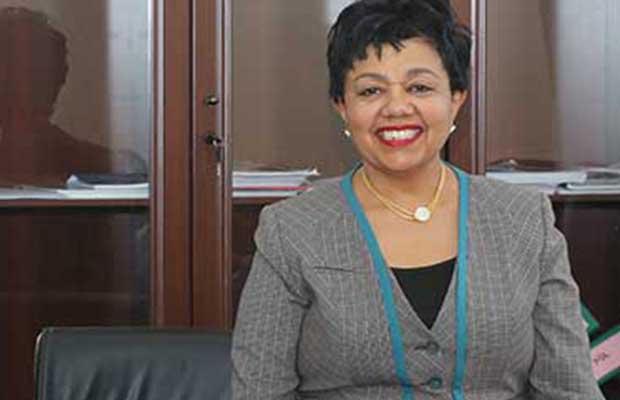
Fortune News | May 23,2021
It was several days ago. I argued with a long time friend, which seemed to go on for forever. It is about numbers. He was perturbed and frustrated with the near-total absence of applying numbers in the execution of duties and responsibilities with the positions he had been holding for ages.
It had been compounded by a company culture spearheaded by a CEO with the belief that no position within a work environment requires qualification exceeding the eighth grade with, in his term, no more than the main elements of math. This is addition, subtraction, multiplication and division, including the ability to draw a simple bar graph. It was a company where he had his most recent experience.
I am aware that my friend always expects from me statements in consonance with his habit of distorting the facts until they become bearable for his own views. If it were not for his recent purchase of a hand-me-down desktop computer, I would not have raised the issue at all. I usually argue the virtues of promoting numbers and their use as statistical tools wherever, as it is key to continual improvement of any endeavour. Of course, computers these days are making many mathematically abilities moot.
Nevertheless, I could not change his mind. Although he was wrong in his assertions, the more I tried to persuade him, the deeper he dug into his own views. He was a victim of a notorious psychological affliction – cognitive dissonance.
It was instantly after we left each other, and we said our goodbyes, that I was taken with thoughts to my undergraduate college days. We had a course on policy formulation with an instructor articulate in his use of the English language and subject matter knowledge. We had an exciting semester all the way to the exam. When the results came, it turned sour only for me. I scored a “D.” I was shocked and headed to his office to protest the abysmal grades.
Unusual to most instructors with grade complaints then, he welcomed me and listened to my grievance. As he sifted through the pile of answer papers, he asked if I was aware that the grade for the exam had been inflated. Then, he was equally shocked by my response that I cannot be responsible for the grade inflation alone, as he learned that he did not go through two pages from my answering papers when he went through my work previously.
He promised to have a thorough look at it again. Yet, later on, as he looked uncomfortable with the news, he told me he had changed the result to “C.” Any argument based on the fact from me further than that was un-pupil-like from my side and un-instructor-like on his side. Above all, higher average grades in themselves never prove grade inflation. I even argued that our result was a reflection of the quality of his teaching and our grades the evidence.
A noted psychologist once asked why it is hard to persuade people with facts.
Why does one feel like their argument stands even after evidence to the contrary? Why does being corrected trigger feelings of anger and dismay?
He answered cognitive dissonance. My friend and my college instructor were struggling with this ailment, which creates a feeling of unease and tension. People attempt to relieve this discomfort in different ways. They try to explain the facts as unnecessary by rejecting new information that conflicts with their existing beliefs.
In 1957, Leon Festinger put forward the theory of cognitive dissonance, cleverly combining cognition and motivation to produce what distinguished psychologists summarised as a revolution that revitalised social psychology and changed it forever.
Dissonance can be reduced by changing existing beliefs, adding new ones, or minimising their potency, according to Festinger. He said a heavy smoker who knows smoking is bad for his health would experience dissonance because he continues to puff away. In our personal lives and politics, it is better that we recognise this feeling to deal with our problems more precisely.
PUBLISHED ON
Dec 25,2021 [ VOL
22 , NO
1130]


Fortune News | May 23,2021


Editorial | Dec 11,2021

Radar | Jul 11,2021

Exclusive Interviews | Jan 05,2020

International Stories | Apr 07,2020

Year In Review | Sep 10,2021

Radar | Feb 05,2022

Fortune News | Aug 14,2021

Radar | Oct 09,2021

Dec 22 , 2024 . By TIZITA SHEWAFERAW
Charged with transforming colossal state-owned enterprises into modern and competitiv...

Aug 18 , 2024 . By AKSAH ITALO
Although predictable Yonas Zerihun's job in the ride-hailing service is not immune to...

Jul 28 , 2024 . By TIZITA SHEWAFERAW
Unhabitual, perhaps too many, Samuel Gebreyohannes, 38, used to occasionally enjoy a couple of beers at breakfast. However, he recently swit...

Jul 13 , 2024 . By AKSAH ITALO
Investors who rely on tractors, trucks, and field vehicles for commuting, transporting commodities, and f...

Oct 11 , 2025
Ladislas Farago, a roving Associated Press (AP) correspondent, arrived in Ethiopia in...

Oct 4 , 2025
Eyob Tekalegn (PhD) had been in the Governor's chair for only weeks when, on Septembe...

Sep 27 , 2025
Four years into an experiment with “shock therapy” in education, the national moo...

Sep 20 , 2025
Getachew Reda's return to the national stage was always going to stir attention. Once...